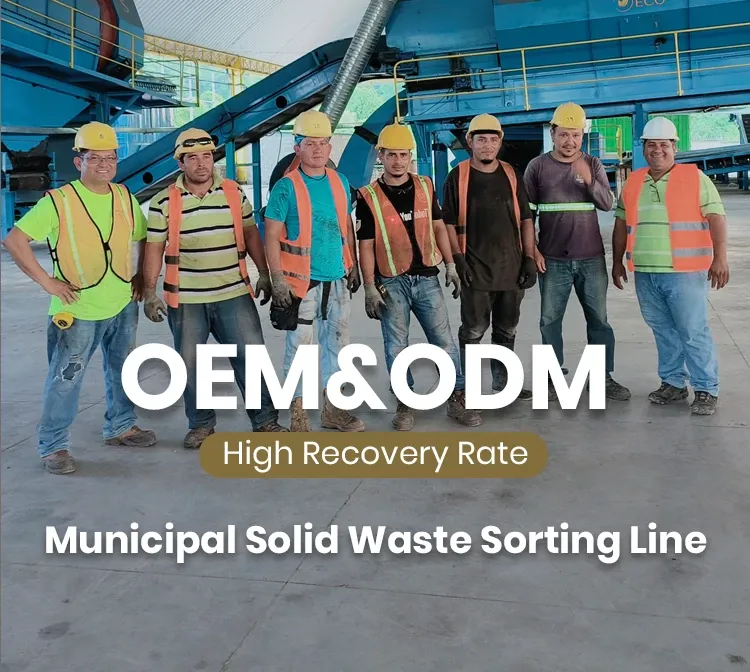
10 月 . 01, 2024 01:26 Back to list
The Importance of Scrap Metal Recycling Plants
In today's world, where environmental concerns are paramount, scrap metal recycling plants play a crucial role in promoting sustainability and conserving natural resources. These facilities are designed to process and recycle various types of metal waste, transforming what would otherwise be landfill-bound refuse into valuable raw materials. This article explores the significance of scrap metal recycling, the processes involved, and the broader impacts on the environment and economy.
Understanding Scrap Metal Recycling
Scrap metal recycling entails the collection, processing, and repurposing of metal waste generated from industrial activities, construction projects, consumer products, and end-of-life vehicles. Metals like steel, aluminum, copper, and brass can be recovered and reused, reducing the necessity for virgin metal extraction from the earth.
Recycling metal provides numerous benefits. It conserves energy, minimizes greenhouse gas emissions, and reduces the volume of waste sent to landfills. For instance, recycling aluminum saves about 95% of the energy required to produce new aluminum from bauxite ore. Similarly, recycling steel saves about 74% of the energy compared to producing it from raw materials.
The Recycling Process
A typical scrap metal recycling plant operates through a series of established steps aimed at efficiently processing and recovering metals
. The process generally begins with the collection of scrap metal, which can be sourced from various places, including construction sites, manufacturing facilities, and consumer items like old appliances and vehicles.Once collected, the scrap is sorted into different categories based on metal types. This sorting is crucial, as different metals have varying properties and applications. Advanced technologies, such as magnetic separation and eddy current separators, are employed to streamline this process and enhance efficiency.

After sorting, the scrap metal is cleaned to remove any non-metal attachments, such as plastics, rubber, or contaminants. This ensures that the final product is of high quality and suitable for reprocessing. The cleaned metal is then shredded into smaller pieces, making it easier to handle and process.
The next step involves melting the shredded metal in large furnaces, where it is heated to extreme temperatures until it becomes molten. This molten metal can then be poured into molds to create new metal products or allowed to cool and solidify into ingots. These ingots serve as the foundation for manufacturing new items, such as cars, appliances, and construction materials.
Environmental and Economic Benefits
Scrap metal recycling plants significantly reduce the environmental impact associated with metal production and waste. By recycling metal, we decrease the demand for mining and extraction activities, which often lead to habitat destruction, water pollution, and soil degradation. Additionally, the energy savings involved in recycling metal reduce reliance on fossil fuels, thus mitigating climate change.
Economically, scrap metal recycling contributes to local and national economies. These plants create jobs in collection, sorting, processing, and distribution. Furthermore, the recycling industry generates revenues from the sale of recycled metal, promoting sustainable economic growth.
Conclusion
In conclusion, scrap metal recycling plants are essential for fostering sustainability and reducing environmental impacts. They not only conserve energy and resources but also contribute to economic development by creating jobs and generating revenue. As global awareness of environmental issues increases, the importance of efficient recycling systems continues to grow. Investing in and supporting the expansion of scrap metal recycling facilities will pave the way for a greener and more sustainable future, ensuring that valuable resources are maintained for generations to come. By recycling metal, we aren't just managing waste; we are embracing a responsible way of living that respects our planet and its resources.
Latest news
Unveiling the Power of Eddy Current Separator
NewsSep.25,2024
Transform Your Home Recyclin:home metal shredder
NewsSep.25,2024
The Future of Waste Management with Recycling Line Picker
NewsSep.25,2024
The Benefits of a Metal Recycling Plant
NewsSep.25,2024
Revolutionize Material Separation with Onwang Technology
NewsSep.25,2024
Innovative Waste Management: Unveiling the MSW Sorting Plant
NewsSep.25,2024